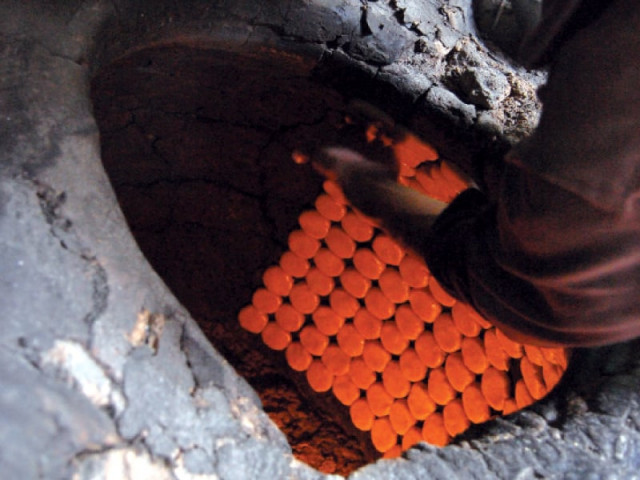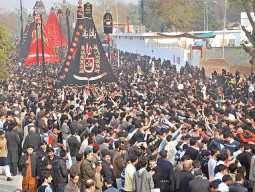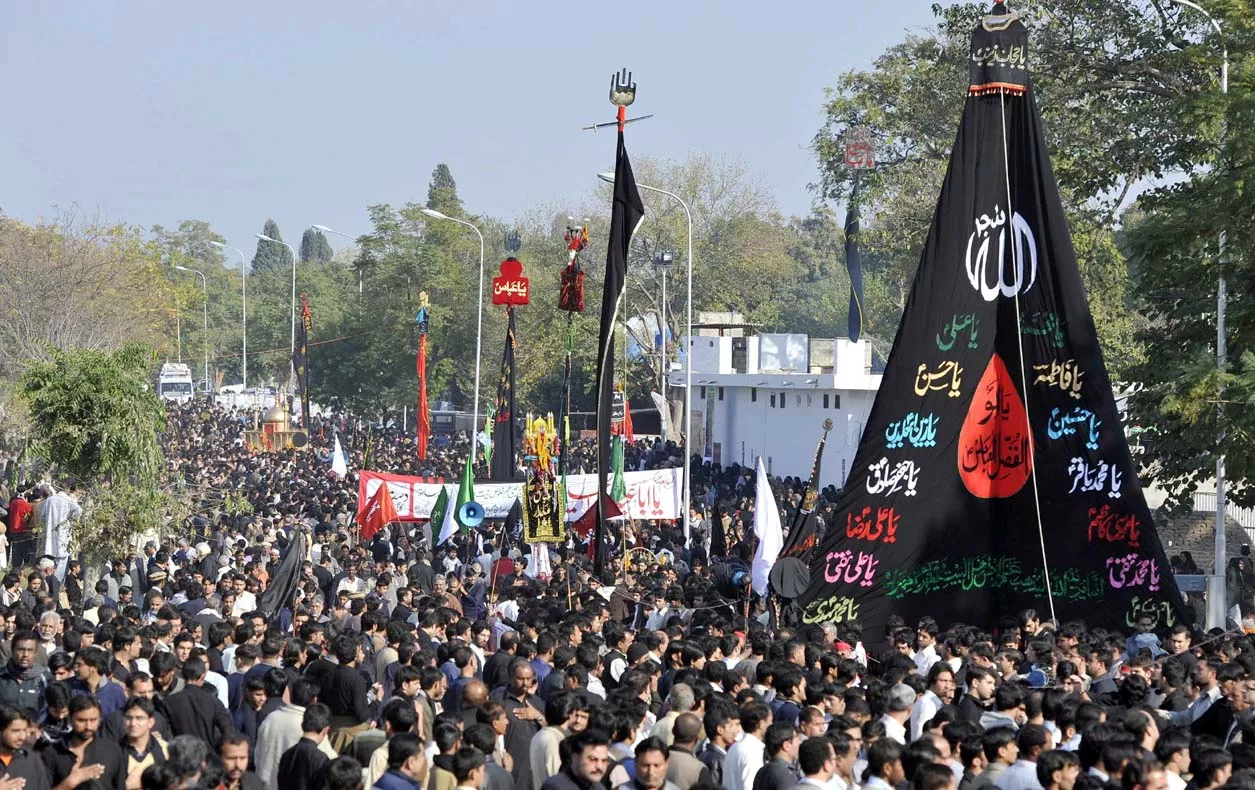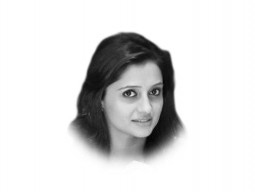
Haji Bashir, or “ustad” as everyone calls him, has been running a naan shop near Banni Chowk in Rawalpindi for the past 40 years. For as long as he can remember, he has baked and sold Kashmiri kulchas.
The kulchas, a round, slightly salty biscuit-like snack, are a popular breakfast item in Azad Jammu and Kashmir (AJK), Gilgit-Baltistan (G-B) and certain parts of Khyber-Pakhtunkhwa (K-P), such as Mansehra and Abbottabad. People mostly have it with tea in the morning.
While there are several shops which exclusively sell these kulchas, in Rawalpindi, however, it is usually the regular naan shops which bake them as a side business.
But Bashir, who belongs to Bagh District of AJK, knows firsthand that people belonging to the northern areas are always in search of their favourite snack and his shop is among the few places in the twin cities they can visit to get their fix.
“Even though these kulchas are mostly bought by people from Kashmir and Gilgit, some locals have also acquired a taste for them,” he said. The snack is also liked by foreigners, who take them along on their way back, he added.
“They don’t go stale as they are dry. They can be stored for months,” said Amjad Qazi, Bashir’s apprentice who belongs to Muzaffarabad.
Across the road from Bashir’s shop, there is another one-room shop without a signboard. A small, old glass showcase perched on top of a white table displays the kulchas at the front.
At the back of the shop near the clay oven, or tandoor, Muhammad Zada makes dough for naan. He said he started his business here two years ago.
“The naan and roti business was not so good in this area, so I decided to start off here,” he said.
Like Bashir, Zada’s customers are mostly from Kashmir, but a lot of diabetic patients have also started coming in to buy the kulchas since they do not contain any sugar.
Still the customer base is limited and so is the supply. Bashir bakes a batch of around 10 dozen kulchas a day. Zada prepares even less; around six dozen.
“Sometimes customers buy two or three dozen in one go, after which I have to prepare a new batch. But that doesn’t happen too often,” said Zada. Moreover, at Rs120 per dozen, the kulchas cost almost twice as much as they do in Kashmir, he added.
Zada said he learnt the recipe to bake Kashmiri kulchas from an expert, since the process is quite different from an ordinary naan or roti.
“These kulchas are prepared in a regular tandoor, but the process is time consuming and requires effort,” said Bashir. Firstly, the tandoor is pre-heated and then the gas is cut off. The dough is put in the tandoor, covered and left to bake for three hours.
The tedious method means regular tandoors cannot bake these kulchas during peak hours of sale. At Bashir’s shop, they are baked from 5pm onwards.
Though the dough is prepared differently, the main ingredients to bake the kulchas are the same as for ordinary ones: ghee, fine wheat flour, a bit of baking powder and yeast.
“It’s a completely different recipe. Unlike ordinary naan or roti, there’s no water involved. The ghee does all the baking,” explained Zada. Three kilograms of wheat flour and one kilogram of ghee can prepare one kilogram of these kulchas.
The Kashmiri kulchas might not have achieve widespread popularity in the twin cities, perhaps due to competition from the traditional Punjabi breakfast, but bread shops like Bashir’s and Zada’s make sure those who crave for the snack are never disappointed.
Published in The Express Tribune, November 2nd, 2012.


1724919650-0/Untitled-design-(5)1724919650-0-270x192.webp)















COMMENTS
Comments are moderated and generally will be posted if they are on-topic and not abusive.
For more information, please see our Comments FAQ